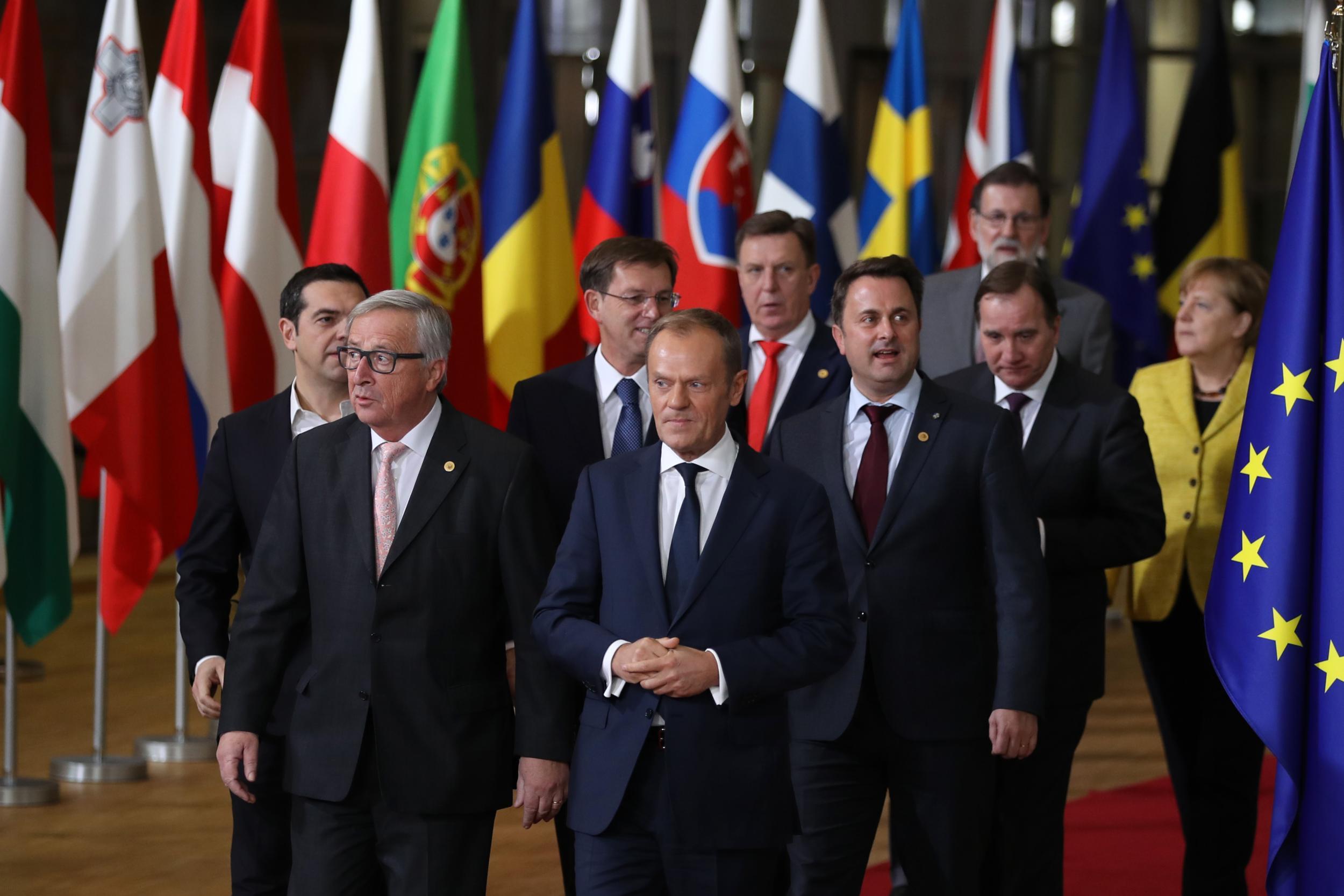Your support helps us to tell the story
From reproductive rights to climate change to Big Tech, The Independent is on the ground when the story is developing. Whether it's investigating the financials of Elon Musk's pro-Trump PAC or producing our latest documentary, 'The A Word', which shines a light on the American women fighting for reproductive rights, we know how important it is to parse out the facts from the messaging.
At such a critical moment in US history, we need reporters on the ground. Your donation allows us to keep sending journalists to speak to both sides of the story.
The Independent is trusted by Americans across the entire political spectrum. And unlike many other quality news outlets, we choose not to lock Americans out of our reporting and analysis with paywalls. We believe quality journalism should be available to everyone, paid for by those who can afford it.
Your support makes all the difference.The leaders of the European Union’s 27 other member states have formally agreed to move to the next phase of Brexit talks at a summit in Brussels on Friday – though full talks are not expected to begin until March.
European Council president Donald Tusk announced the news in the early afternoon, wishing Theresa May his “congratulations” for the new progress.
New red lines issued by the leaders to EU negotiators say that the talks can now discuss “transitional arrangements as well as the overall understanding on the framework for the future relationship” – falling short of full discussions about trade.
The Prime Minister, who flew back to the UK late on Thursday night after attending the summit, was applauded by EU national leaders when she spoke over dinner of her wish to move to the next stage of talks.
Arriving at the second day of the summit on Friday morning European Commission president Jean-Claude said the applause came because “some of us felt, including me, that she did make a big effort and this has to be recognised”.
But the PM also acquiesced to EU demands for full trade framework talks to be postponed until March, amid concern in Brussels that the UK is not prepared for them. Downing Street has said the Cabinet will discuss what sort of trade deal the UK wants before Christmas.
The agreed Council guidelines also confirm that leaders want the UK to adopt all new EU laws created during the transition period, but that the country will “no longer participate in or nominate or elect members of the EU institutions, nor participate in the decision-making of the Union bodies, offices and agencies”.
The red line potentially sets the stage for the next round of clashes, because the Foreign Secretary Boris Johnson has said in certain terms he will not accept new EU laws.
Another clause that could enrage Brexiteers is the stipulation that the UK would have to “continue to comply with EU trade policy” during the transition due to its continuing membership of the Customs Union – likely to mean Britain is not able to sign new trade deals with other countries until after the implementation period ends.
The new guidelines, which will be implemented by Commission chief negotiator Michel Barnier, were agreed by leaders within 10 minutes in a short meeting on Friday. They were largely unchanged from draft versions leaked ahead of the summit. The EU has stressed its "unity" in the negotiations, despite public rows between countries in other areas at the summit such as on migration policy and reforms to the eurozone.
The second phase will be more demanding, more challenging than the first phase.
Jean-Claude Juncker confirmed that the "real" negotiations in the second phase would start in March. He said before that point, Mr Barnier would run a small number of seminars to scope out the EU27 countries' views on a trade deal.
"I think that the real negotiations on the second phase will start in March next year. I cannot say when these negotiations will be concluded, but hope I don’t have to has an as early morning meeting with the Prime Minister than the one I had last week," he told reporters in Brussels.
Mr Tusk warned: “The second phase will be more demanding, more challenging than the first phase.”
A Downing Street spokesperson welcomed the news of the move to the second phase: “Today is an important step on the road to delivering a smooth and orderly Brexit and forging our deep and special future partnership.”

Join our commenting forum
Join thought-provoking conversations, follow other Independent readers and see their replies
Comments